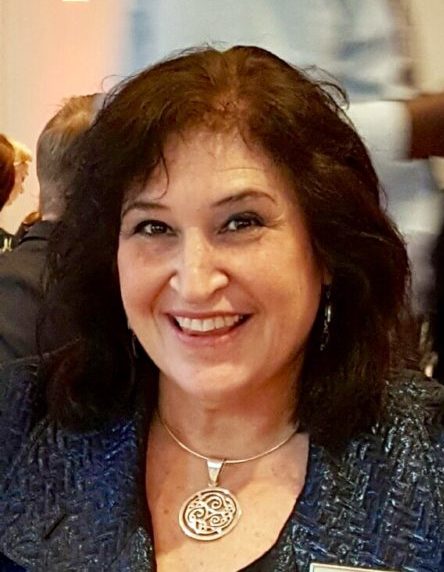Living Amidst the COVID-19 Pandemic
Posted in General | Tagged in #Review our COVID-19 Procedures

Written by Elaine Rotenberg, Ph.D., Clinical Director at Alpert Jewish Family Service
There is no question that COVID-19 has taken center stage in our world. It has become the focus of most conversations, many TV specials, and the precipitant to ending most professional sporting events and entertainment for the time being. Because we live in the world of 24-hour news outlets, we have had an accelerated course in learning new concepts: “social distancing,” “flattening the curve,” and on and on. Things that less than a month ago, we never thought about. There are many unanswered questions right now, “Should I do this?” “Should I go here?” “Should I travel?”
We must realize that uncertainty, coupled with a real health risk, coupled with store closings and shelves being empty is contributing to many people feeling an increased level of anxiety and worry. Further, because none of us is immune to everyday worries and challenges, the added pressure of COVID-19 is simply added on top of what we are already managing in our lives! So, how do we manage our fears and anxiety and continue to function in our day to day lives?
The following Tips have been provided by the American Psychological Association:
Keep things in perspective. Take a deep breath and remind yourself that most people who contract COVID-19 will only experience mild symptoms. Work is being done to help people who may be more vulnerable to the coronavirus, such as senior citizens and those with underlying health conditions. The fact that coverage is increasing on this issue does not necessarily mean that it presents an increased threat to you or your family.
Get the facts. It is helpful to adopt a more analytical approach as you follow news reports about the coronavirus. You will also want to verify information that you receive from family, friends or social media. The U.S. Centers for Disease Control and Prevention has a webpage dedicated to information on the coronavirus outbreak. You may also find useful, reputable information from local or state public health agencies or even your family physician.
Communicate with your children. Discuss the news coverage of the coronavirus with honest and age-appropriate information. Parents can also help allay distress by focusing children on routines and schedules. Remember that children will observe your behaviors and emotions for cues on how to manage their feelings during this time. You may want to limit how much media they consume to help keep their anxiety in check.
Keep connected. Maintaining social networks can foster a sense of normality and provide valuable outlets for sharing feelings and relieving stress. You can maintain these connections without increasing your risk of getting the virus by talking on the phone, texting or chatting with people on social media platforms. Feel free to share useful information you find on government websites with your friends and family. It will help them deal with their anxiety.
Seek additional help. Individuals who feel an overwhelming nervousness, a lingering sadness, or other prolonged reactions that adversely affect their job performance or interpersonal relationships should consult with a trained and experienced mental health professional. Psychologists and other appropriate mental health providers can help people deal with extreme stress. These professionals work with individuals to help them find constructive ways to manage adversity.
At Alpert JFS, our offices remain open, and our team of mental health professionals is here to support you during this challenging time. We are not going anywhere. With one telephone call, 561-684-1991, we will direct you to someone with whom you can speak about your concerns.
A certain amount of worry, fear or anxiety is not surprising for any of us at this time. However, if you find that you are struggling to eat, sleep, feeling hopeless, seeking alcohol or drugs, and having a hard time coping with everyday activities for 2 weeks or more, please consider reaching out so we can connect you with one of our licensed mental health professionals. And remember, it is OK to pick up the phone and ask for some support.
Please note that if you are concerned about coming into our offices, we can arrange for you to communicate with a mental health professional via telemental health
As a community, we must remember that “SOCIAL DISTANCING” does not have to mean “SOCIAL ISOLATION.” Ironically, we are being challenged as a community to find ways to help each other and stay connected, caring about ourselves, our families, and our neighbors, even though we may not be in physical proximity. We can use our telephones, Skype, FaceTime, texting, or even just call a vulnerable friend or neighbor and ask if you can deliver groceries.
Don’t forget to find time to relax, breathe, take a walk, phone a friend, and take a break from watching the unending TV coverage of COVID-19. Give yourself permission to find joy and feel hopeful.
Let us continue to go from strength to strength, as we take care of ourselves, our families, and our communities.
www.AlpertJFS.org
Leave a Reply